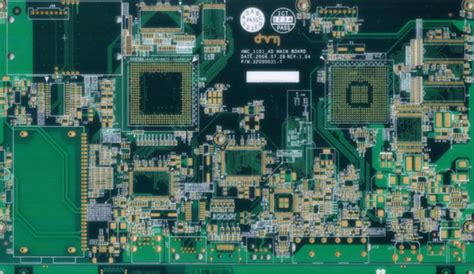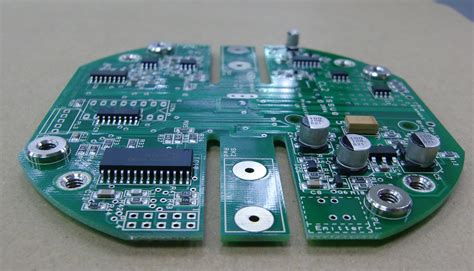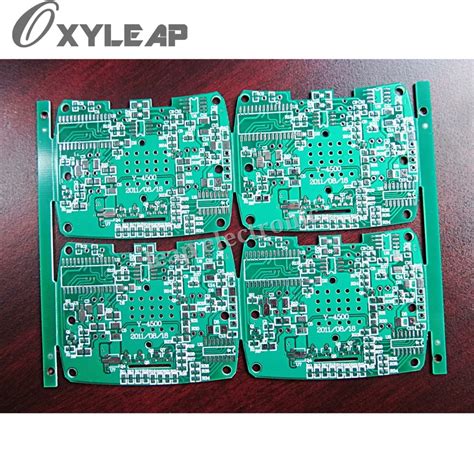Unlocking Efficiency: The Future of Contract Manufacturing in PCB Assembly
Key Takeaways
The realm of contract manufacturing in PCB assembly (or PCBA) is undergoing a transformative phase, marked by significant advancements that enhance productivity and efficiency. As electronics continue to evolve, manufacturers are increasingly turning to specialized contract manufacturers to optimize their production processes. The integration of cutting-edge technology plays a pivotal role in streamlining PCB assembly operations, enabling quicker turnaround times and reduced waste. The rise of automation and the Internet of Things (IoT) has led to improved accuracy and consistency in assembling printed circuit boards, aligning with the fast-paced demands of modern electronic devices. Furthermore, partnerships with experienced contract manufacturers offer numerous advantages, including access to expert knowledge, cost-effectiveness, and the ability to scale operations swiftly. Understanding these developments equips businesses with the insights needed to navigate the complexities of the industry effectively. As we delve deeper into this evolving landscape, it becomes evident that securing reliable partnerships in PCBA can lead to a sustainable competitive edge in the ever-changing electronics market.
Understanding Contract Manufacturing: A Comprehensive Overview of PCB Assembly
Contract manufacturing plays a pivotal role in the world of PCB assembly, offering companies the opportunity to outsource manufacturing processes while focusing on their core competencies. This approach not only streamlines production but also enhances efficiency, enabling businesses to meet the increasing demands of modern electronics. The term PCBA refers to the assembly of printed circuit boards, which can vary significantly in complexity and size, making effective contract manufacturing essential.
The landscape of contract manufacturing in PCB assembly has evolved rapidly due to advancements in technology and production methodologies. Outsourcing these processes helps firms reduce costs and improve their production capabilities by leveraging the expertise of specialized manufacturers. The relationship between a company and its contract manufacturer is vital for ensuring quality control and timely delivery, two key factors that significantly impact overall productivity.
To illustrate the effectiveness of this model, consider the following table that outlines some primary advantages and challenges associated with contract manufacturing in PCB assembly:
| Advantages | Challenges |
|---|---|
| Cost savings through economies of scale | Potential quality control issues |
| Access to specialized technology and skills | Dependence on external suppliers |
| Increased flexibility and scalability | Communication barriers |
| Faster time-to-market | Intellectual property concerns |
With an array of complex requirements in modern electronics, businesses that engage with skilled contract manufacturers can navigate challenges more effectively while innovating their production efforts. Hence, understanding the nuanced aspects of this relationship is crucial for companies looking to thrive in a competitive marketplace. Embracing effective pcb assembly strategies will not only enhance operational output but also foster long-term partnerships within the industry, creating a robust network capable of addressing evolving market trends.
Innovations Driving Efficiency in PCB Contract Manufacturing
The landscape of pcb assembly is continually transformed through innovative practices that drive efficiency in contract manufacturing. With the rise of advanced automation technologies, companies are increasingly adopting robotics and artificial intelligence, facilitating faster and more accurate pcba processes. This shift not only enhances production speeds but also minimizes human errors, leading to improved product quality.
Moreover, the integration of the Internet of Things (IoT) allows for real-time monitoring and analytics in pcb assembly, enabling manufacturers to identify bottlenecks and address them proactively. As such, companies can make data-driven decisions that significantly enhance their operational efficiencies. For instance, predictive maintenance systems can greatly reduce downtime by addressing potential equipment failures before they occur.
“The key to competitive advantage in the evolving world of electronics lies in adopting cutting-edge innovations,” emphasizes industry expert John Doe. This approach empowers manufacturers to stay ahead by meeting the ever-growing demands for faster product cycles and customized solutions.
In addition, collaboration with specialized contract manufacturers offers access to state-of-the-art techniques and resources that may not be feasible for individual companies to develop in-house. By leveraging these partnerships, electronics businesses can focus on their core competencies while benefiting from streamlined pcb assembly operations that enhance overall productivity and cost-effectiveness.
As these trends continue to evolve, it becomes increasingly clear that maximizing efficiency through innovation is not just an option but a necessity in the competitive realm of contract manufacturing for printed circuit boards.
The Role of Technology in Optimizing PCB Assembly Processes
The integration of technology into PCB assembly processes has proven to be a game changer in enhancing efficiency and precision within the industry. Automated systems, robotics, and advanced software solutions are increasingly being utilized to streamline workflows, minimize errors, and reduce production times. By incorporating these innovations, companies can achieve higher throughput while maintaining the quality of their products. For example, the use of sophisticated PCBA design tools allows manufacturers to simulate assembly processes before execution, ensuring that potential issues are identified and addressed in advance. Moreover, real-time monitoring systems provide valuable insights into machine performance and production metrics, enabling proactive maintenance and immediate adjustments when necessary. As the demand for more complex electronic devices continues to grow, the critical role of technology in optimizing PCB assembly cannot be overstated; it stands at the forefront of meeting the rapid evolution in consumer expectations while driving down costs associated with manufacturing. Embracing these advancements not only enhances productivity but also positions companies favorably in a competitive market landscape where agility and responsiveness are crucial for success.
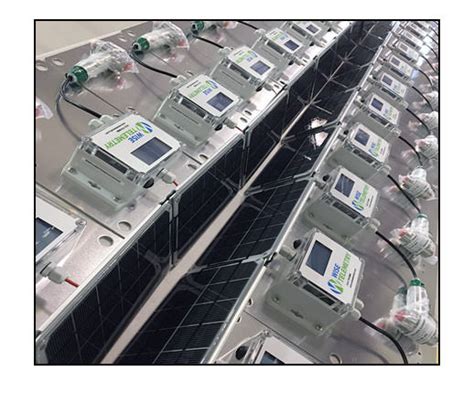
Key Benefits of Partnering with Contract Manufacturers in Electronics
Partnering with contract manufacturers in the electronics sector, particularly in PCB assembly (PCBA), offers numerous strategic advantages for companies aiming to enhance their production capabilities. One of the primary benefits is cost efficiency. By outsourcing PCBA to specialized manufacturers, companies can significantly reduce overhead costs associated with labor, materials, and facility maintenance. This financial flexibility enables businesses to allocate resources more efficiently to other critical areas such as research and development.
Additionally, expertise plays a crucial role when collaborating with established contract manufacturers. These partners possess in-depth knowledge of PCB assembly processes and the latest industry standards, allowing for higher-quality products that meet rigorous specifications. The integration of state-of-the-art technologies further streamlines operations and minimizes the risk of errors during production.
Moreover, scalability is another vital benefit that supports rapid market responsiveness. With contract manufacturers capable of adjusting production scales quickly to match demand fluctuations, businesses can avoid costly delays or excess inventory. This adaptability becomes increasingly important in today’s fast-paced electronics market where customer preferences and technological advancements are constantly evolving.
Ultimately, the synergy created through partnerships with contract manufacturers leads to enhanced PCBA efficiency and innovation, positioning companies for long-term success while maintaining a competitive edge in the dynamic landscape of electronics manufacturing.
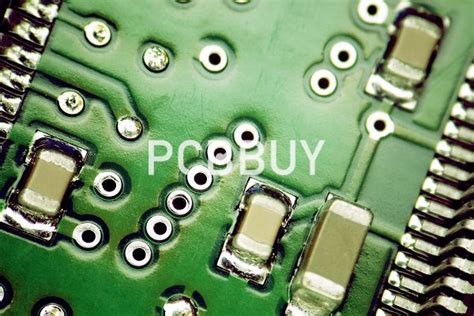
Case Studies: Successful Implementations of PCB Assembly Contracts
In the realm of contract manufacturing, the PCB assembly sector has witnessed transformative growth, driven by strategic partnerships that empower companies to navigate the complexities of modern electronics. One notable example is a leading consumer electronics manufacturer that collaborated with a specialized contract manufacturer to expedite the production of a new flagship product. By leveraging innovative techniques and optimized workflows, this partnership allowed for significant reductions in production time, showcasing the enhanced capabilities of pcba through streamlined processes and superior quality control measures.
Another compelling case involved an automotive supplier that turned to a contract manufacturer for its PCB assembly needs amidst increasing demand for electric vehicle components. In this scenario, the integration of advanced automation technologies facilitated rapid scaling of production while maintaining high standards in component reliability and performance. This success story underscores how effective collaboration in pcba can lead to sustainable growth and competitive advantages in ever-evolving markets.
These examples highlight how investing in strategic contract manufacturing relationships can not only boost operational efficiencies but also drive innovation within the PCB assembly landscape. As businesses continue to adapt to changing technologies and consumer demands, such partnerships will likely play an essential role in shaping the future of electronics production while ensuring that high-quality standards are consistently met.
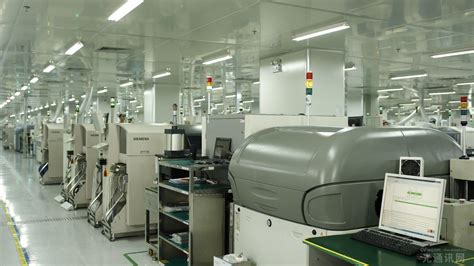
Challenges in Contract Manufacturing and Strategies to Overcome Them
In the PCB assembly sector, one of the most pressing challenges faced in contract manufacturing is ensuring consistent quality across various production runs. Variations in materials and techniques can lead to defects that impact the reliability of the final product. To address this, manufacturers can implement rigorous quality control protocols and standardized procedures to maintain high standards throughout the PCBA process. Another significant challenge is managing supply chain disruptions, which can hinder the timely availability of components essential for pcb assembly. To mitigate these risks, companies should cultivate strong relationships with multiple suppliers as well as invest in predictive analytics tools that enhance inventory management. Furthermore, communication barriers between design teams and manufacturing partners can lead to misunderstandings and engineering changes that may not be feasible. By fostering open dialogue through regular meetings and status updates, stakeholders can ensure that expectations are aligned. Ultimately, navigating these challenges requires a proactive approach focused on collaboration and leveraging technology to optimize efficiency and achieve superior outcomes in contract manufacturing for PCB assembly.
The Future Trends Shaping the PCB Assembly Landscape
The landscape of contract manufacturing in PCB assembly is poised for significant transformation as several trends emerge, driven by technological advancements and evolving market demands. One key trend is the increasing adoption of automation and smart technologies, which enhance the efficiency of PCBA processes. As manufacturers face pressure to reduce lead times and costs, integrating robotics, AI, and machine learning into their workflows becomes imperative. Additionally, the shift towards more sustainable practices is reshaping how contract manufacturers approach production, with a focus on minimizing waste and optimizing resource usage in PCB assembly. The rise of Industry 4.0 not only demands smarter production lines but also encourages greater collaboration between stakeholders through real-time data sharing, ensuring that manufacturers can respond swiftly to changes in consumer preferences. Moreover, as electronic devices become more complex, the need for specialized expertise in pcba design and assembly is amplifying, leading companies to forge stronger partnerships with dedicated contract manufacturers. In this dynamic environment, understanding these trends is crucial for businesses aiming to thrive in the fast-evolving world of electronics manufacturing.
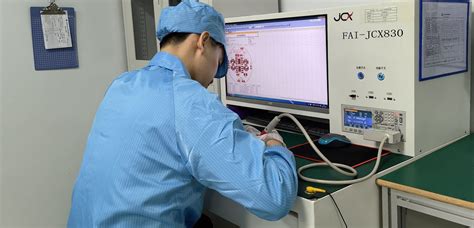
Best Practices for Selecting a Contract Manufacturer for PCB Assembly
Selecting the right contract manufacturer for PCB assembly (PCBA) is crucial for achieving high-quality products and maintaining operational efficiency. Businesses should first conduct thorough research to identify potential manufacturers with proven expertise in PCBA processes. Evaluating a manufacturer’s technological capabilities is essential; advanced machinery and software can significantly enhance production efficiency and accuracy in the assembly of printed circuit boards. Furthermore, assessing a contractor’s experience in the specific domain relevant to your products can provide insights into their capability to meet complex requirements. It is also important to consider communication practices, as a transparent and efficient dialogue can facilitate smoother project management and problem resolution. Additionally, reviewing client testimonials and case studies will help in gauging reliability and customer satisfaction. Cost-effectiveness should also be weighed alongside quality; choosing the least expensive option may not always yield the best results. Ultimately, a balanced approach that considers quality, technology, customer support, and cost will lead to an informed selection of a contract manufacturer that aligns with your business goals in PCB assembly.
Conclusion
In summary, the evolving landscape of contract manufacturing in PCB assembly (often referred to as PCBA) represents a critical component in the electronics industry, as companies strive to meet increasing demands for efficiency and innovation. As we explored throughout this article, advancements in technology play an essential role in optimizing PCBA processes, allowing manufacturers to reduce costs and enhance production rates. Partnering with skilled contract manufacturers provides key benefits, including access to specialized expertise and modern facilities that support the complex nature of pcb assembly. Moreover, successful case studies illustrate how companies have effectively leveraged contract manufacturing to bring products to market faster and with higher quality standards. However, navigating the challenges within this domain requires strategic planning and collaboration. Looking ahead, it is clear that trends such as automation and AI integration will continue to shape the PCB assembly landscape, setting new benchmarks for performance and reliability that are paramount for the future success of electronics production.
FAQs
What is contract manufacturing in PCB assembly?
Contract manufacturing in PCB assembly refers to a business model where companies outsource the manufacturing processes of printed circuit boards (PCBA) to specialized third-party manufacturers. This allows companies to focus on design and innovation while leveraging the expertise and resources of contract manufacturers for production.
How can contract manufacturing improve efficiency in PCB assembly?
Contract manufacturers often employ advanced technologies and streamlined processes that enhance production efficiency. By utilizing specialized machinery and optimized workflows, these manufacturers can reduce lead times, minimize errors, and lower overall costs associated with PCBA.
What should I consider when selecting a contract manufacturer for PCB assembly?
When selecting a contract manufacturer for PCB assembly, consider their experience, technological capabilities, quality control measures, scalability, and customer service. It’s also crucial to review their previous work and client testimonials to ensure they align with your specific needs.
What are the advantages of using contract manufacturing for PCB assembly?
Outsourcing PCB assembly to a contract manufacturer can offer several advantages, including reduced production costs, increased flexibility in scaling operations, enhanced access to advanced technologies, and the ability to focus on your core business activities without diverting resources.
Are there challenges associated with contract manufacturing in PCB assembly?
Yes, challenges such as communication barriers, quality assurance issues, and intellectual property concerns can arise in contract manufacturing relationships. It is essential to establish clear contracts and maintain consistent communication to mitigate these risks effectively.





